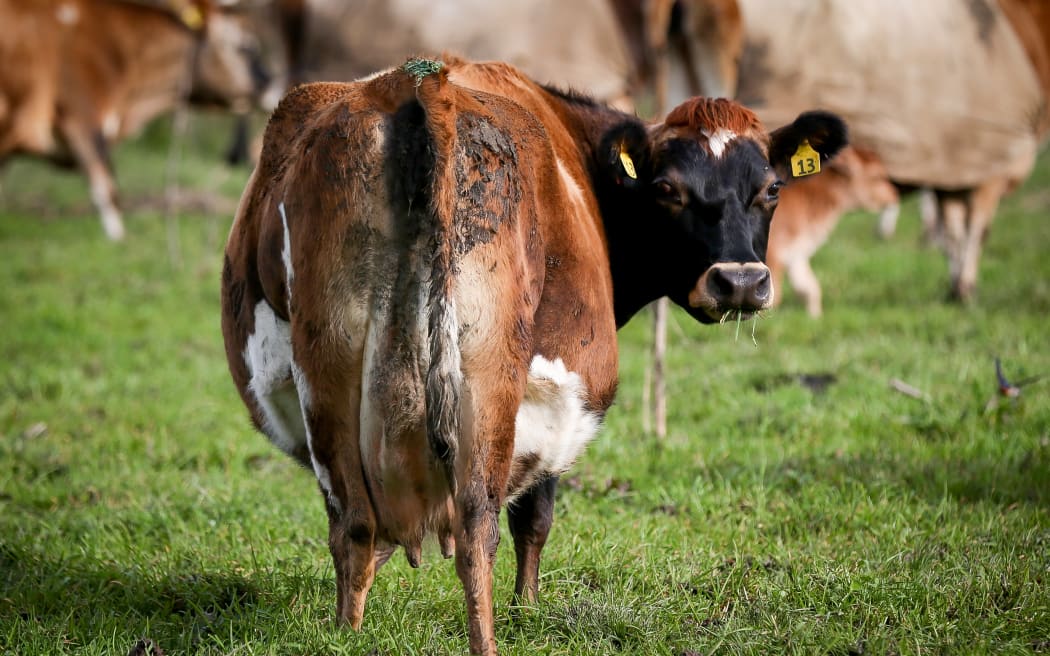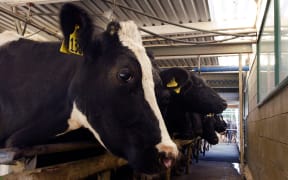
Commodity prices have dipped due to an oversupply and softer demand from New Zealand's key market China. Photo: RNZ / Alexander Robertson
The number of dairy farmers defaulting on their bank loans is expected to rise as costs continue to bite and commodity prices remain soft.
That's according to the Reserve Bank's latest Financial Stability Report which also said the number defaulting could accelerate if there was a prolonged period of low prices.
Commodity prices have dipped due to an oversupply and softer demand from New Zealand's key market, China.
"Prices of dairy, meat, and forestry products have fallen by 8 to 20 percent compared to a year ago," the report said.
That drop has led Fonterra to adjust its forecast milk price to a mid-point of $7.25 a kilogram of milk solids.
While higher than other payouts in recent years, this season farmers have been fighting rising costs for inputs such as labour, feed and fertiliser and rising debt servicing costs which have doubled in the last two years.
The RBNZ report said the average break-even dairy revenue per kgMS for the 2023/24 season was estimated to be around $8 so at the current forecast some farms would make a loss.
"Banks perceive most of their dairy customers to be reasonably well-placed to weather a short period of low payout. Significant deleveraging in the sector in recent years has contained debt servicing costs and has supported the option for many farmers to go interest-only to alleviate cashflow stress.
"However banks expect defaults among dairy borrowers to rise over the coming year, because there tends to be a time lag between cashflow stress and default," the report said.
It pointed out a prolonged period of low dairy prices or a further reduction in prices were more likely to exhaust the cash buffer of farmers with weaker balance sheets, leading to materially higher default rates.
Federated Farmers president Wayne Langford said the report was not surprising.
"Federated Farmers has been pointing out for a while now that farmers are under huge pressure at the moment, with rising inflation costs, double that of what we're seeing in urban centres, so it's an extremely tough time on farm with product prices coming back as well.
"What was well forecast, was the lowering of the product prices as well. A lot of our expenses come in the first half of the season so when we got early warning we were able to cut back on some of those expenses."
Langford said despite that there had been some reports of farmers having to default.
"Banks have been reasonable but it's in their best interest to help farmers get through tough times.
"But we're still keen for an inquiry into the banks, particularly a rural banking inquiry, because we feel at the moment interest rates are out of whack.
"I was talking to a tradie and a farmer the other day. The tradie is paying 6.8 percent on his loan while the farmer is paying 9.8 per cent on his loan."
Langford said it was in their banks' interest to help farmers get through tough times.






